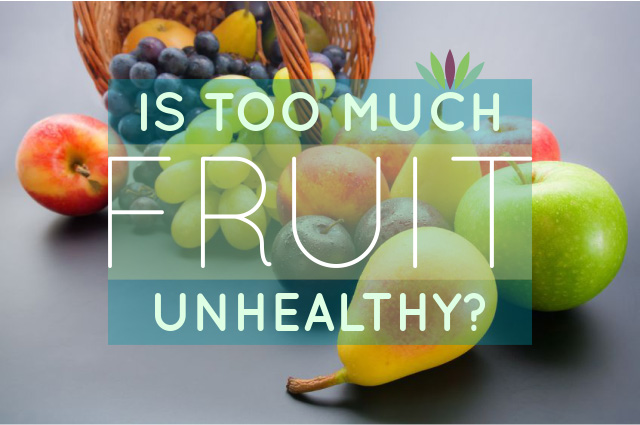Your fructose consumption should be kept at 15 to 25 grams per day. No more than this! Fruit is not as healthy as many are lead to believe. This begs the question, “Is too Much Fruit Unhealthy?”It is best for your body if you split your fruit intake into smaller portions of 3-8 grams per meal or as a snack. Don’t know how much this is? There are charts online that tell you the grams of fructose are in fruit. One of my favorites is posted by Family Wellness HQ. For example, 100 grams of apple (about 31/2 ounces) contains 5.9 grams of fructose.
Enjoying a few small organic apples in your day is entirely within bounds. But 100 grams of dried medjool dates has 39.5 grams of fructose, so getting used to correct portion size of fruit is essential for health. Buy a small food scale and weigh your fruit. You will find that a large bowl of yummy strawberries has the same amount of fructose as 2 dried dates! And, of course, get rid of all “hidden” fructose like high fructose corn syrup in processed foods and soft drinks.
I am not against fruit. Research shows that some fruit may be helpful. Your liver manages blood glucose levels for the body and may do it better when given small doses of fructose. SMALL “catalytic” doses, less than 10 grams of fruit per serving. Emphasis on “small” because fructose has a major caution as a calorie source: it is chemically reactive, reacting with proteins to form advanced glycation end products (called AGEs) that disrupt normal bodily functions. AGEs can cause stiff joints, aged skin, damage DNA, hasten aging, stiffen blood vessels to cause high blood pressure, and cause kidney disease. The key is to not eat too much.
How Harmful is Fructose?
EXCESS intake of fructose can be harmful:
- In the gut, excess fructose promotes gut permeability and poisoning of the body by endotoxemia
- In the liver, fructose promotes fatty liver disease and metabolic syndrome
- Fructose disposal in the body generates uric acid, which can cause gout or kidney stones
- If the liver can’t dispose of fructose quickly enough and the blood level becomes elevated, it promotes cancer
- High doses of fructose clearly promote obesity in clinical trials and in animal studies***
Your body needs some carbs. But eating the fructose found in fruit instead of the glucose found in plant starches like peas, yams, taro, sweet potatoes, green beans, basmati rice or tapioca is not smart. Plant starch gives us healthy glucose. Every cell in the entire body can process glucose. Fruit gives us fructose. The liver is the only organ in the body whose job it is to process fructose. Our bodies simply were not designed for large quantities of fruit.
So remember, for optimal health, stick to 15-25 grams of fructose per day.
Learn More
***These comments on fructose were taken from a wonderful book called The Perfect Health Diet by Paul and Shou-Ching Jaminet. Chapter 10 on Carbohydrates is the chapter from which I quoted the material. They deserve the credit!









